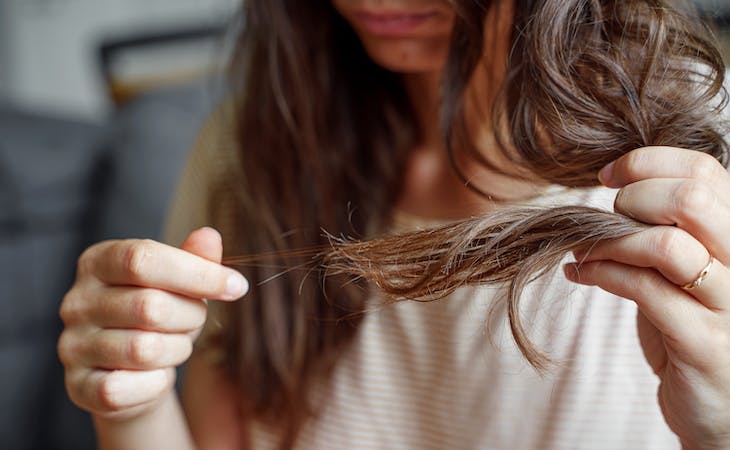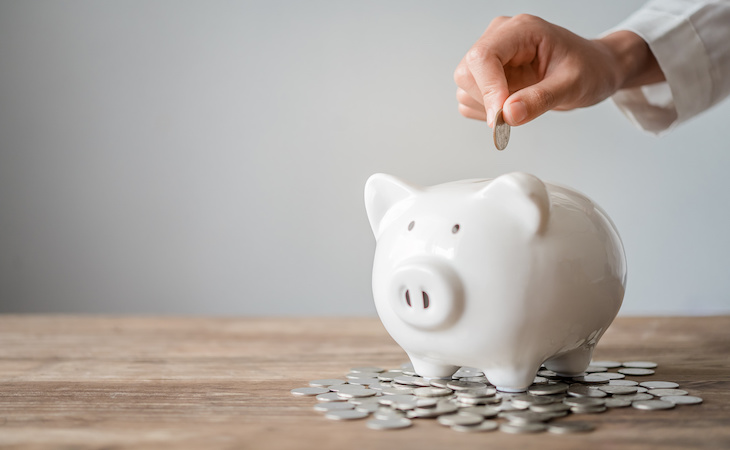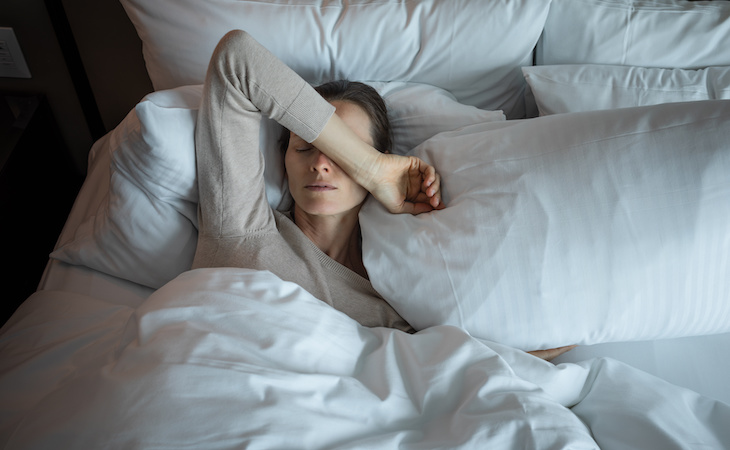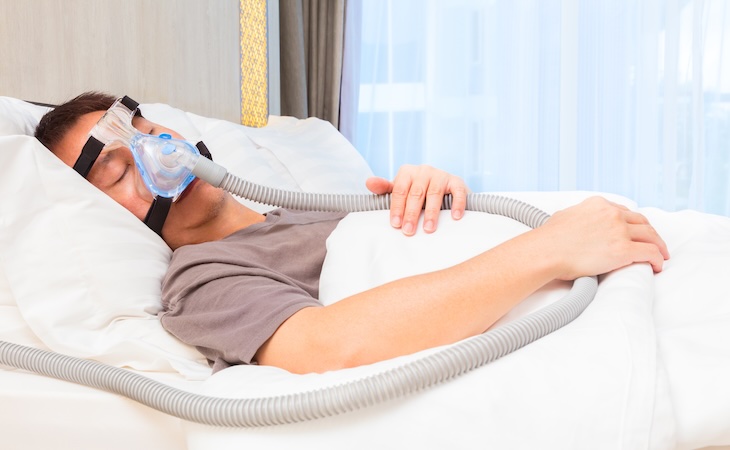A lack of sleep can impact everything from your mental clarity to your energy level—but did you know it can also have an impact on your hair health?
In fact, if you’re someone who’s struggling with hair loss already, sleep deprivation can make it even worse. This is primarily due to the impact sleep has on lots of other body systems, including your hormone levels (specifically human growth hormones) that allow your body to heal itself.
To learn more about the connection between sleep and hair loss, we spoke with William Gaunitz, certified trichologist, fellow of the World Society of Trichologists, and founder of Advanced Trichology, as well as William Slator, chemical engineer, product designer, and founder of Hairguard.
Can lack of sleep cause hair loss?
For starters, Gaunitz explains exactly what role sleep plays when it comes to hair health.
“While you sleep, your body does the vast majority of its repair and stabilization,” he says. “If you’re getting less than six hours of sleep per night on average, you’re probably causing disruptions in different organ systems including your adrenals, thyroid, and standard neurological patterns.” When these organs are out of balance, says Gaunitz, this can lead to hair shedding.
Slator adds that sleep loss can result in higher stress, which is also linked to hair loss. One study even found that women who regularly experience high stress levels are up to 11 times more likely to experience some amount of hair loss. (Here’s why you shouldn’t sleep on wet hair.)
Can sleep apnea cause hair loss?
For those with sleep apnea, the hair loss problem can be a bit more complex.
“Due to the disruptions in oxygen blood levels and sleep disruptions caused by sleep apnea, it certainly could have a ripple effect that would lead to inflammatory hair loss,” explains Gaunitz.
It makes sense, especially because sleep apnea causes people to regularly miss out on quality sleep. It’s also been proven that regular sleep loss can expedite the onset of male pattern baldness or even worsen the severity of other genetically-inherited hair diagnoses.
How can you improve your sleep and prevent hair loss?
Luckily, there are some easy things you can do to improve both your sleep quality and hair health. Below, Gaunitz and Slator weigh in with some ideas:
- Wash your pillowcases regularly. While silk pillowcases have become trendy because they’re softer on your hair, you still need to clean them regularly for optimal hair health. Gaunitz says you should try to wash or switch out your pillowcases every three to five days. This, he explains, will “prevent a recurrence of microbial overgrowth.” (Here’s how to prevent and fix bed head.)
- Squeeze in more time for exercise. Too much cortisol can lead to stress, which, in turn, can lead to poor sleep and hair loss. Research shows exercise can help lower cortisol levels so you can keep your hair healthy and get better sleep. Slator suggests making time for at least 30 minutes of cardio exercise per day. For those looking to integrate weight training into their regimens, he says it’s a good idea to aim for three days a week.
- Take a breath. Start a routine of five minutes of deep breathing 30 minutes before you lie down. “Deep breathing will help oxygenate the lungs, helping to deliver more nutrients to the hair follicles,” says Slator. “Aside from this, it will also help you sleep and help reduce cortisol.”
- Try supplements. Gaunitz says the most commonly-recommended supplements to combat hair loss are the FoliGROWTH vitamin, as well as the DHT Blocker and Nutra M topical melatonin serum. When it comes to improving sleep specifically, Slator says magnesium, zinc, and valerian root supplements, when taken at least 30 minutes before bedtime, can really help. “It’s often mineral deficiencies that can cause sleeplessness,” he says. Always consult with your doctor before adding new supplements to your routine. (Learn how to sleep on your hair to prevent overnight damage.)
- Treat your sleep apnea. If you have sleep apnea, then take steps to get it under control. Work with your doctor to find the solution that’s best for you. This may include wearing a CPAP machine or other oral appliance at night to keep your airways open while you sleep.
It’s not just your hair that’s affected by sleep deprivation. Check out what happens to your body when you don’t get enough sleep.




